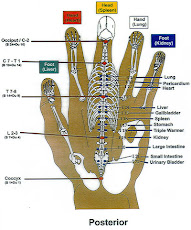Rhizoma Zingiberis, Gingembre,Ingwer,건강,अदरख, 生薑, 生姜, 생강.,
There is a wide range of benefits of ginger such as:
Nausea caused during pregnancy or by travelling. Calms an upset stomach and promotes the flow of bile.
Stomach cramps can be eased and circulation can also be improved. Ginger supports a healthy cardiovascular system by making platelets less sticky which in turn reduces circulatory problems.
Ginger oil used for massage can help relieve painful arthritis due to its anti-inflammatory properties.
Ginger is often included in many herbal decongestants and can help to minimise the symptoms of respiratory conditions, colds and allergies,
and:....
Stomach cramps can be eased and circulation can also be improved. Ginger supports a healthy cardiovascular system by making platelets less sticky which in turn reduces circulatory problems.
Ginger oil used for massage can help relieve painful arthritis due to its anti-inflammatory properties.
Ginger is often included in many herbal decongestants and can help to minimise the symptoms of respiratory conditions, colds and allergies,
and:....
Ovarian Cancer .!!!!
Ginger may be powerful weapon in the treatment of ovarian cancer. A study conducted at the University of Michigan Comprehensive Cancer Center found that ginger powder induces cell death in all ovarian cancer cells to which it was applied, ginger may slow the growth of colorectal cancer cells.
One study showed that ginger has anti-inflammatory properties and is a powerful natural painkiller. Muscle pain after sporting.
Ginger has long been used as a natural heartburn remedy. It is most often taken in the form of tea for this purpose.
It has long been used as a natural treatment for colds and the flu. Many people also find ginger to be helpful in the case of stomach flus or food poisoning, which is not surprising given the positive effects ginger has upon the digestive tract.
Research has shown that ginger may provide migraine relief due to its ability to stop prostaglandins from causing pain and inflammation in blood vessels.
In Chinese medicine, ginger tea with brown sugar is used in the treatment of menstrual cramps.
Prevention of Diabetic Nephropathy
A study done on diabetic rats found that those rats given ginger had a reduced incidence of diabetic nephropathy (kidney damage).
A study done on diabetic rats found that those rats given ginger had a reduced incidence of diabetic nephropathy (kidney damage).
Ginger has an effect on blood clots that is similar to that of aspirin.
Denmark researchers have discovered that ginger can block the effects of prostaglandins. These are substances that cause inflammation of the blood vessels in the brain, which leads to migraines.
TEA
Though the results are still experimental, 1/3 teaspoon of fresh of powdered ginger taken when you feel a migraine coming on can help stop pain before it starts.
The ginger tea described above or 1/2 teaspoon of ginger is recommended by Danish researchers for arthritis relief.
|
By the same token, it appears that high cholesterol levels are lowered using the same active ingredient, thromboxane.
For motion sickness, upset stomachs, colds or headaches, steep about a teaspoon of chopped fresh ginger in a cup of boiling water to make a tea. Sip this tea before taking a trip to avoid motion sickness or during or after the journey to calm a queasy stomach.
If you have athlete’s foot, cool this tea and soak your feet in it. It’s anti-fungal property will ease the burn and itch.
Ginger tea is also said to reduce excessive perspiration, act as an aphrodisiac, and freshen one’s breath. (Not bad for the stem of a plant that grows underground).
As a mood enhancer, ginger’s cineole content may help contribute to stress relief.
So sipping a cold glass of ginger ale after a hard day at the office might be just what the doctor ordered. Just make sure the ginger ale you drink is made with real ginger.
(Some of today’s sodas are artificially flavored and will do nothing for you like ginger can.)
 With all the benefits of ginger and continuing research, the ginger root is fast becoming another, very popular medicinal herb.
With all the benefits of ginger and continuing research, the ginger root is fast becoming another, very popular medicinal herb.The essential oil (1 to 3% of the fresh rhizome) contains mostly sesquiterpenes, e.g., (–)-zingiberene (up to 70%), (+)-ar-curcumene β-sesquiphellandrene, bisabolene and farnesene.
- Monoterpenoids occur in traces (β-phelladrene, cineol, citral).The pungency of ginger is caused by a non-volatile resin containing the same type of hydroxyaryl compounds that are also found in other spices of the ginger family: Zingerone, gingeroles and shoagoles. The pungent gingeroles degrade to the milder shoagoles during storage; high gingerole content and good pungency thus indicate freshness and quality. Ginger is different from Kurkuma
~~OTHER HEALTH TIPS~~ CANCER . the right food..
EAT and LOSE weight,
WATER, hot/cold water and Heart attack,
CVA - STROKE ? ... Sing !!.....!!
HERNIA, Nucleus Pulposus,HNP,
MIGRAINE,
GASTRIC ACID (heartburn),
Hyper Baric Oxygen Therapy, HBOT,
TOOTH ACHE ,
ACNE/PIMPLES ,
LARGE INTESTINE BACTERIA
QUIT SMOKING,
WORK-OUT, Create your own gym,
EAT and LOSE weight,
WATER, hot/cold water and Heart attack,
CVA - STROKE ? ... Sing !!.....!!
HERNIA, Nucleus Pulposus,HNP,
MIGRAINE,
GASTRIC ACID (heartburn),
Hyper Baric Oxygen Therapy, HBOT,
TOOTH ACHE ,
ACNE/PIMPLES ,
LARGE INTESTINE BACTERIA
QUIT SMOKING,
WORK-OUT, Create your own gym,
AND:
~~~~THE HEALING POWER OF~~~~:
..FRUITS, (should be eaten on empty stomach)
..ASPIRINE,
..AVOCADO ..BEE STING VENOM,
..BROCCOLI,
..CANNABIS,
..CELERY,
..CHOCOLATE,
..COCONUT,
..CUCUMBER,
..EGGS, EGG SHELLS
..FIGS,
..FRUIT- (JUICES),
..GRAPE (seeds)
..GARLIC,
..GINGER (gember),
..HAWTHORN BERRIES,
..HEMP OIL, ..HONEY,
..HOT PEPPERS(Cayenne),
..KIWI,
..KURKUMA/TURMERIC(yellow and black)
..LIGHT,
..LEAN MEAT,
..MANGO,
..MARIJUANA,
..MILK
..OLIVE OIL,
..ONIONS,
..TOMATOES,
..WATERCRESS,
..FRUITS, (should be eaten on empty stomach)
..ASPIRINE,
..AVOCADO ..BEE STING VENOM,
..BROCCOLI,
..CANNABIS,
..CELERY,
..CHOCOLATE,
..COCONUT,
..CUCUMBER,
..EGGS, EGG SHELLS
..FIGS,
..FRUIT- (JUICES),
..GRAPE (seeds)
..GARLIC,
..GINGER (gember),
..HAWTHORN BERRIES,
..HEMP OIL, ..HONEY,
..HOT PEPPERS(Cayenne),
..KIWI,
..KURKUMA/TURMERIC(yellow and black)
..LIGHT,
..LEAN MEAT,
..MANGO,
..MARIJUANA,
..MILK
..OLIVE OIL,
..ONIONS,
..TOMATOES,
..WATERCRESS,
.



















No comments:
Post a Comment